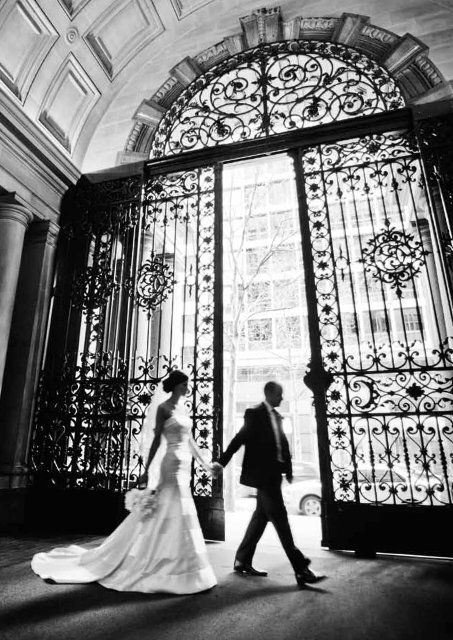iMODA eMagazine 2015.pdf
iMODA eMagazine 2015
iMODA eMagazine 2015
You also want an ePaper? Increase the reach of your titles
YUMPU automatically turns print PDFs into web optimized ePapers that Google loves.
Photography // Gazi Photography<br />
Planning Your Ceremony<br />
YOUR GUIDE TO SAYING “I DO”.<br />
CHURCH WEDDING<br />
Depending on your religious beliefs a religious<br />
ceremony tends to be performed in a place of<br />
worship, such as a church or temple. Most faiths<br />
are bound by a traditional structure and impose<br />
certain rules, it’s important to familiarise yourself<br />
with these before saying your “I do’s”. For example<br />
some religions allow inter-faith marriages, whilst<br />
some don’t, others have requirements about the<br />
upbringing of children and some insist on premarital<br />
counselling. These types of requirements<br />
can take months so it’s important to consult your<br />
relevant clergy member as soon as possible after<br />
your engagement.<br />
CIVIL CEREMONY<br />
For couples not bound by religion or who wish to<br />
embrace a less traditional approach a civil ceremony<br />
is the common choice. Civil ceremonies are not<br />
influenced by religious beliefs and can be performed<br />
just about anywhere, the only requirement being<br />
you publicly exchange vows. You also have the<br />
freedom to customise your ceremony from scratch<br />
to make it unique and meaningful to you as a couple.<br />
THE REGISTRY OFFICE<br />
Holding your nuptials at the registry office can<br />
be as formal or informal as you like. The bride is<br />
free to wear a wedding gown and have bridesmaids,<br />
and a registry office can hold up to 30 guests. Like<br />
most venues Saturday is usually the busiest day,<br />
whilst days like Valentine’s Day can be booked well<br />
in advance. Contact your local Registry of Births,<br />
Deaths and Marriages for more information.<br />
THE CELEBRANT<br />
Who you choose as your celebrant will be<br />
dependent on whether you have religious, civil<br />
or inter-faith ceremony. If you’re opting for a civil<br />
ceremony you’ll need to appoint your own celebrant<br />
to officiate the marriage, whilst if you’re planning on<br />
a religious ceremony your officiant may be limited<br />
by your choice of venue. It’s important whoever you<br />
choose you feel comfortable with, each celebrant<br />
has a different style and approach so it’s important<br />
theirs is right for you. Civil celebrants are usually<br />
chosen based on recommendation but you can<br />
also reference the Australian Federation of Civil<br />
Celebrants, www.civilcelebrants.com.au<br />
VOWS<br />
If you’re planning on writing your own vows, it’s<br />
important you start planning them at least a month<br />
in advance. Consider whether you’ll write them<br />
together or separately, and if it’s the latter think<br />
about whether you’ll share them before hand or<br />
whether you’ll leave it as a surprise. Upon putting<br />
pen to paper reflect on how you fell in love, special<br />
moments and memories, what you love about each<br />
other and your hopes and promises for the future. If<br />
either of you has children you may want to include a<br />
vow to honour and love them as well.



